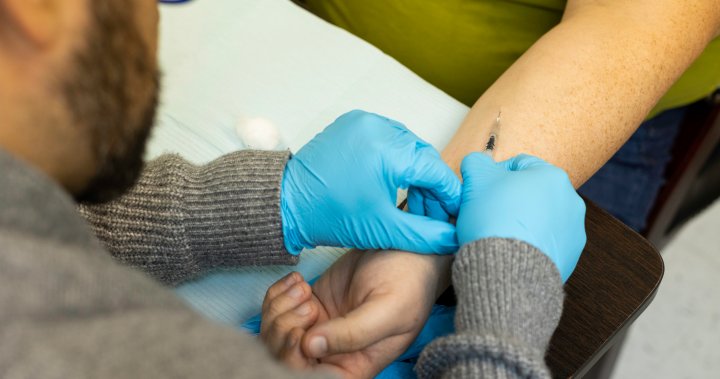A recent study conducted in Canada found that a single dose of the Modified vaccinia Ankara-Bavarian Nordic (MVA-BN) vaccine offers moderate protection against the mpox virus. The study reported that the vaccine was 58 per cent effective in protecting against the infection. This was the first study to evaluate the effectiveness of the vaccine in real-world conditions outside of clinical trials. The vaccine is typically given in a two-dose regimen, but this study focused specifically on the effectiveness of a single dose. The vaccine was introduced in Ontario in response to the global mpox outbreak and was initially used as a single-dose strategy before transitioning to a two-dose program.
Before the outbreak, there was limited data on the effectiveness of the MVA-BN vaccine against mpox. The researchers of the study aimed to provide a more accurate estimate of the vaccine’s effectiveness by conducting a target trial with a total of 3,204 vaccinated individuals matched to 3,204 unvaccinated controls. Over the study period, 71 mpox infections were diagnosed, with 21 in the vaccinated group and 50 in the unvaccinated group. The results showed a 58 per cent reduction in the risk of infection among those who received the vaccine. While 58 per cent effectiveness may not sound high, the researchers described these results as promising and emphasized the positive impact it could have, especially when combined with other preventive measures.
The World Health Organization (WHO) declared mpox a global public health emergency for the second time in two years in response to an outbreak of the virus in parts of Africa. Ontario also experienced a sharp rise in mpox cases around the same time. Mpox, previously known as monkeypox, was primarily confined to central and western Africa but began spreading rapidly among people worldwide in 2022. Mpox causes similar symptoms to smallpox but is generally milder. The virus is transmitted through close contact with infected animals and can be identified by symptoms such as skin rash, mucosal lesions, fever, headache, muscle aches, and swollen lymph nodes.
Mpox is caused by two genetic variants known as Clade I and Clade II. Clade II, the less severe variant, was responsible for the global outbreak in 2022 and is currently circulating in Canada. Clade I, a more severe strain with higher mortality rates, has also been detected in various countries outside of Africa. The MVA-BN vaccine has only been studied in Ontario against the Clade II strain, but there is hope that it may still be effective against Clade I. The researchers stressed the importance of making the vaccine available and accessible to communities at risk in order to prevent mpox infections.
With mpox infections on the rise globally, the findings of the study support the effectiveness of the MVA-BN vaccine in preventing mpox infection. The researchers suggest that the vaccine should be prioritized for at-risk populations to help reduce transmission and infection rates. Further research is needed to determine the vaccine’s effectiveness against different strains of mpox, but the initial results are encouraging. The study provides valuable insights into the real-world effectiveness of the MVA-BN vaccine and highlights the importance of vaccination as a tool in combating infectious diseases.


